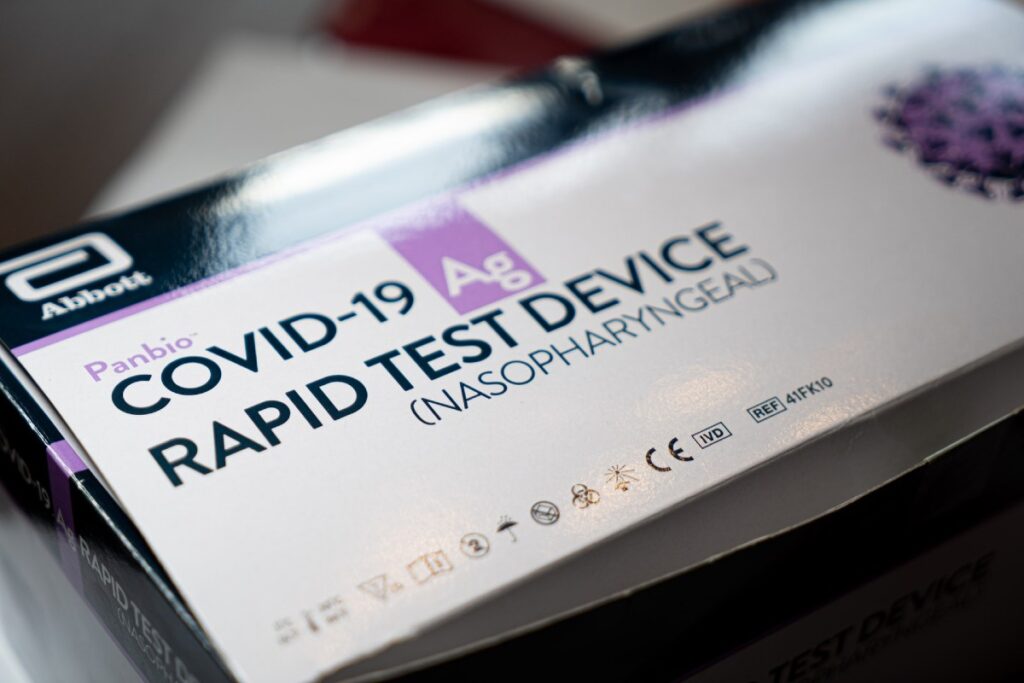
By Andy Brack, editor and publisher | For the last 40 months, Covid-19 has lurked like the rattlesnake it is, hidden and ready to strike at just the right moment. For 40 months, I avoided that snake by parrying with all of the appropriate protocols to quell its rattlers – wearing masks, washing hands, cleaning surfaces with antiseptic wipes, avoiding crowds, getting vaccinated and then getting boosted.
 But lulled by what felt like a return to the normal that existed before March 2020, I got distracted and didn’t listen as attentively to the snake’s rattlers. I knew Mean Mr. Covid was out there, lurking and lying in wait. But other things got in the way, as things do.
But lulled by what felt like a return to the normal that existed before March 2020, I got distracted and didn’t listen as attentively to the snake’s rattlers. I knew Mean Mr. Covid was out there, lurking and lying in wait. But other things got in the way, as things do.
And “bam” just as the nation’s pandemic emergency expired, the snake struck in a flash, infecting me sometime late last week with the virus so painstakingly avoided for so long.
Fortunately, my case hasn’t been too bad – more like a really bad summer cold with a horrible-sounding occasional cough. Perhaps antibodies from vaccines tamped down some of the symptoms – I didn’t lose the sense of taste or appetite. Perhaps the strain of the virus was weaker than many got.
But the clear lesson is just as it was three years ago – this virus is out there still and you don’t want to get it if you can avoid it.
Public health officials say transmission of Covid-19 is expected to rise again over the summer, despite the public health emergency going away.
“Right now the key public health message for the community is it’s looking like we’re having another wave potentially coming like we have had every summer for the past three and a half years,” Dr. Michael Sweat, director of the Medical University of South Carolina (MUSC) Center for Global Health, told the Charleston City Paper this week.
While as a whole people are coping better with Covid-19, it’s still dangerous. For the week ending May 20, 14 people died across South Carolina from the virus, according to data from the S.C. Department of Health and Environmental Control.
“People who are older, immuno-compromised or have low risk-tolerance — pay attention, because you don’t want to catch this,” Sweat said.
Since the pandemic started, one of every 255 people in South Carolina died from the disease, according to data compiled by The New York Times. That equates to 20,192 people who died – about the same number of people who live in North Myrtle Beach.
There are things you can do to protect yourself and your family from Covid, which seems like it will be with us a long time, much like the flu is every year. By now, we should all know the anti-Covid drill:
Get vaccinated. Your risk of getting the virus is greatly diminished if you have a vaccination and keep it boosted as recommended. In South Carolina, just under 60% of residents are vaccinated and only 26% have had boosters, according to the Times data. The most vulnerable – people 65 and older – had a 90% vaccination rate and 61% booster rate.
Have testing kits on hand. Test yourself immediately if you think you might have been exposed. If you test positive, there are treatments available that can reduce the risk of hospitalization and death, according to the Centers for Disease Control and Prevention.
Take precautions. Operate in ventilated areas. Wear a mask if you are concerned about higher levels of the disease.
Don’t delay treatment. If you test positive, treatment is most effective the quicker it begins. And make sure you quarantine appropriately so others don’t get it.
Covid-19 is not something to gamble with. The rattlesnake lives. Make sure you keep listening for its rattles so you don’t get bitten.
Andy Brack is editor and publisher of Statehouse Report and the Charleston City Paper. Have a comment? Send to: feedback@statehousereport.com.
















 We Can Do Better, South Carolina!
We Can Do Better, South Carolina!